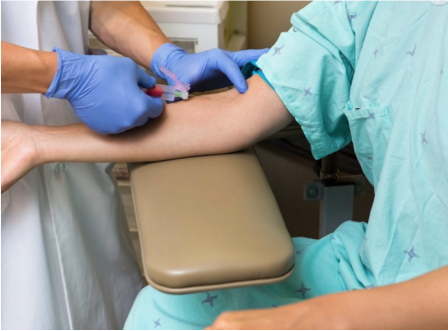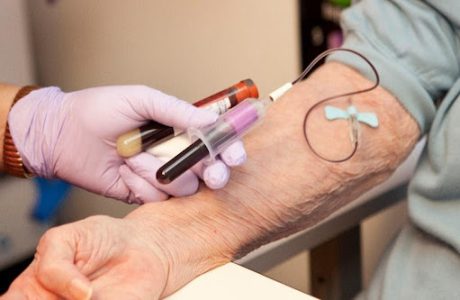Phlebotomists play a vital role in any healthcare setting they’re employed in. Interestingly, phlebotomy is also one of the fastest ways to become a certified healthcare professional. This is because some phlebotomist training programs only take 4 weeks of schooling. Whether you’re looking to leave your current job or you have just finished high school – a career in phlebotomy can be an exhilarating career to pursue!
To help you out, we’ve compiled a phlebotomy career guide below. This includes finding out what’s a phlebotomist and their responsibilities, the benefits and incentives of the role, and the steps you must take to become certified.
Learn about pursuing a career in phlebotomy with Training Direct!
What is phlebotomy?
Chances are, you may have already met with a phlebotomist if you’ve visited a medical clinic or hospital and had blood drawn. A phlebotomist, also known as Phlebotomy Technician, is a healthcare professional who is responsible for collecting blood samples from patients in a safe and effective manner. If you decided to pursue a career in phlebotomy, you could soon be the person patients meet if they need to give blood.
What do phlebotomists do?
Essentially, by becoming a phlebotomist, you become a clinical department’s specialist in extracting and handling patient blood samples. This means phlebotomists are critical members of almost every medical facility’s healthcare team. They may perform tasks such as:
- Finding and tapping healthy veins for blood
- Accurately recording and safely storing samples
- Maintaining a sterile environment and infection control
- Providing patient care, engaging with them throughout the process
Is the phlebotomy career path right for me?
Before enrolling in a phlebotomy training program, it’s important to assess if it’s the right career for you. If you feel you have the traits to be a phlebotomist that’s fantastic! You’re one step closer! There are other things to consider as well. Fortunately, pursuing a career in phlebotomy does offer several reasons why you may want to join the profession.
For starters, it’s a career path predicted to see employment growth. So much so that the U.S. Bureau for Labor Statistics (BLS) has projected that phlebotomist employment is set to rise by an impressive 8% from 2022 to 2032. This is faster than average for all occupations.1
Additionally, you also have a variety of medical and healthcare facilities that employ phlebotomists. For example, pursuing a career in phlebotomy could soon see you working in:
- Hospital inpatients, outpatients, and Emergency Room (ER) departments
- Independent healthcare facilities
- Diagnostic laboratories and research institutions
- Nursing homes and long-term care clinics
Finally, career advancement is a possibility! As you become familiar with medical terminology, instruments, and procedures, you can combine this with continued education to pursue more advanced careers in the field of healthcare such as licensed practical nurse (LPN), registered nurse (RN) or medical laboratory technician.
Pursuing education and certification!
If you like the sound of pursuing a career in phlebotomy, then your first step is to enroll in a certified phlebotomy training program before taking your certification exam. A training program can provide you with the necessary experience and skills to succeed. If you’re curious about what to expect, read more about phlebotomy training here.
What’s a phlebotomist certification exam? Ultimately, it’s a method of assessing your knowledge and skills learned during a phlebotomy training program. Due to the nature of a phlebotomist’s role within the clinical setting, it helps to ensure you can perform the required tasks before you can become certified. However, once you’ve passed the exam, and met the requirements of the registry, you’re certified and considered to be a qualified phlebotomist.
Training Direct can help you get started in Connecticut!
Here at Training Direct, we strive to help aspiring phlebotomists achieve their goal of becoming certified. Our phlebotomy training program is purposely designed to cover the required phlebotomy skills to help you challenge a certification examination and prepare you for your new career.
Working alongside our fantastic team of educators, you can receive hands-on instruction to help you tackle your future with confidence. You could soon be pursuing a career in phlebotomy and applying to entry-level jobs at a medical facility of your choosing.
Check out our phlebotomy training program today at either of our campus locations in Danbury and Bridgeport, Connecticut!
Sources:
Bureau of Labor Statistics, U.S. Department of Labor, Occupational Outlook Handbook, Phlebotomists, at https://www.bls.gov/ooh/healthcare/phlebotomists.htm#tab-6 (visited October 26th, 2023)





